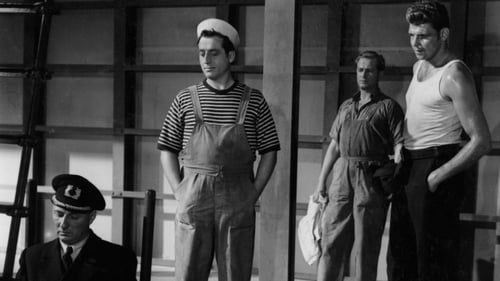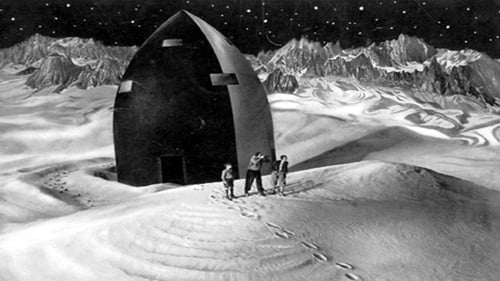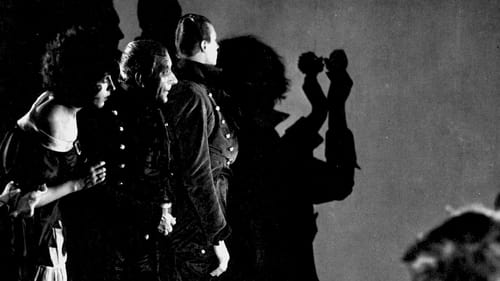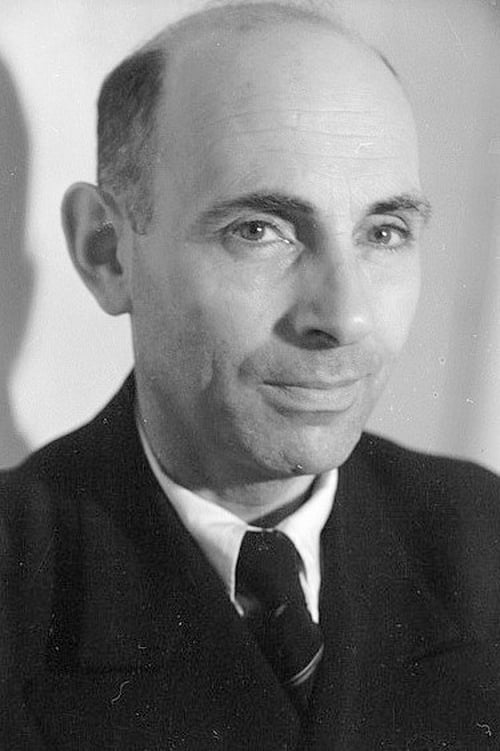Gustav von Wangenheim
出生 : 1895-02-18, Wiesbaden, Germany
死亡 : 1975-10-14
略歴
From Wikipedia, the free encyclopedia
Gustav von Wangenheim (February 18, 1895 – August 5, 1975) was a German actor, screenwriter and director.
Description above from the Wikipedia article Gustav von Wangenheim, licensed under CC-BY-SA, full list of contributors on Wikipedia.

Hutter (as Gustav v. Wangenheim)
The horror classic, Nosferatu, remastered with a soundtrack by Type-O Negative and hosted by David Carradine.

Screenplay

Director

Director

Writer

Director

Writer

Director

Screenplay

Director

Hutter (edited from "Nosferatu")
A wisecracking narrator mocks footage featuring Frankenstein's monster and Count Dracula.

Desmoulin
This pre-WW II German costume drama chronicles the French Revolution with a particular focus upon Danton, Robespierre, and Marat. It depicts the dramatic downfall and execution of Georges Danton in 1794 at the hands of Maximilien Robespierre. The film also presents an interesting, if not historically inaccurate, portrayal of Louis XVI.

Hans Windegger
A scientist discovers that there's gold on the moon. He builds a rocket to fly there, but there's too much rivalry among the crew to have a successful expedition.

Her Lover
During a dinner given by a wealthy baron and his wife, attended by four of her suitors in a 19th century German manor, a shadow-player rescues the marriage by giving all the guests a vision what might happen tonight if the baron stays jealous and the suitors do not reduce their advances towards his beautiful wife. Or was it a vision?

Jäger
In a distant Teutonic village, people dance and drink merrily celebrating a wedding feast. However, an elderly man tells the villagers that the valley where they live wasn't always happy but sorrowful. This was due to the tyranny of the master of the mountains who ruled the valley despotically.

Hutter
The mysterious Count Orlok summons Thomas Hutter to his remote Transylvanian castle in the mountains. The eerie Orlok seeks to buy a house near Hutter and his wife, Ellen. After Orlok reveals his vampire nature, Hutter struggles to escape the castle, knowing that Ellen is in grave danger

Andreas, sein Sohn
The House on the Moon

A silent movie by Rober Wiene.

Romeo
The story of Romeo and Juliet, a tale as old as time-- Here, played as farcical lark: A goofy comedy of manners set in a snowy Bavarian village.

Paul Seppl
Somewhere in Southern Bavaria Xaver wants to marry Gretel, but her father Kohlhiesel wants his elder daughter Liesel to marry first. The problem is, nobody wants to marry her, because she is too brutal. Seppel suggests, that he should marry Liesel first, get rid of her and then he can marry Gretel...

Janko von Rakowitza

o. A.
The homunculus and his companion Edgar Rodin make an invention that would allow the hateful homunculus to destroy the world. But first he wants to find out about love. When he observes how young Anna is rejected by her parents, he takes care of her and asks her parents for forgiveness - without success. He brings her to her seducer, who also rejects the girl. The homunculus then takes revenge by ruining the man financially and throwing Anna at his feet. But she still loves the villain and asks Homunculus for mercy. The homunculus cannot understand this feeling of love - he wants to try it out on himself. He puts a young woman who loves him to the hardest test, but she will do anything for him, sacrificing her fiancé and her parents. Only when he reveals his artificial nature to her, she leaves him. This experience confirms the homunculus in his intention to destroy mankind.


o. A.
Part of the artificial-creature series encompassing Der Golem (1914 and 1920), Alraune (1918, 1928, 1930) and Metropolis (1926), 'Homunculus' was the most popular serial in Germany during World War I even influencing the dress of fashionable Berlin. Foenss, a Danish star, is the perfect creature manufactured in a laboratory by Kuehne. Having discovered his origins, that he has no 'soul' and is incapable of love, he revenges himself on mankind, instigating revolutions and becoming a monstrous but beautiful tyrant, relentlessly pursued by his creator-father who seeks to rectify his mistake.





